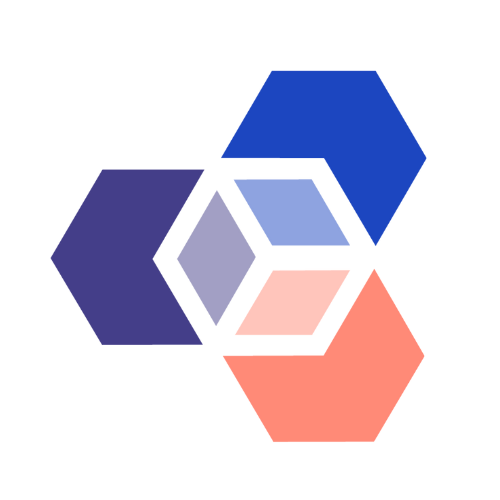We’ve spent quite a bit of time in 2021 working on a Learning Design Bootcamp, alongside colleagues from several other HE institutions. As hosts in a typical sense we would normally have been physically hosting sessions for the bootcamp as well as contributing ideas toward the programme of activities and providing an OU LD flavour to the proceedings. Running it during a pandemic of course has been a slightly different experience both for us as designers and for the participants. We’ve already shared the participant story – now we want to share some thoughts on the experience for us as designers and importantly, what we’ve taken away from the process.
Creating collaboration
The main purpose of the bootcamp is to support course teams from a range of HE institutions with design and evaluation of their courses or qualifications. As hosts for 2021 we needed to work out how to approach the challenge of successfully delivering an online only programme of activities that would (a) support teams with their design challenges and (b) be a sustainable programme of activity for ourselves and colleagues on the bootcamp team.
With that in mind we developed it based around a series of learning design-focused webinar sessions, incorporating hands-on activities, along with the well-embedded mentor support in between sessions that the bootcamp has provided since its inception in 2018. This combination of live events plus mentor support was aimed at enabling a degree of collaboration between the teams along with their work individually with their mentor and in their own environment.
So what did we learn from putting this together and through the delivery of the programme?
Experiential practice of developing an online course
Firstly it gave us a real-world experiential opportunity to design a course for practitioners in the field. We weren’t doing this in isolation, we were working with some great colleagues from other HE institutions, all able to contribute towards the programme and to ensure that we developed a coherent programme along with some varied voices in the individual webinars. This was great, because we didn’t want to indoctrinate people into working in the OU way, we wanted to encourage teams to work within their own environment and framework but to have a supported process to enable them to critically engage with other perspectives as they designed. In some cases, the teams drew more heavily on the tools and approaches we discussed, in other cases they already had their own.
Secondly, it was a great opportunity to collaborate with some like-minded design experts from other institutions. All working toward the same goal of delivering a great virtual bootcamp experience!
Applying some of our own approaches
When we design modules at the OU we encourage teams to gather student feedback as they go. We conducted a similar exercise with the bootcamp through surveying the teams part way through to establish how well the webinars were working. The feedback that came back indicated that participants wanted to spend longer in breakout rooms and so we did just that for the remaining sessions, building in extra time and adding space after the session for further in-depth discussion relating to the topic of the day.
Mentoring
Having members of the team participate in mentoring has been a particular benefit for us. Not only does it enable our team members to work with and experience different design conversations with other HE staff, it’s also been great for the confidence of the team to be seen and valued for providing this key role.
Mentoring is very much a two-way process. Mentors accompany the team(s) they are working with during the Bootcamp design process, acting as a sounding board and critical friend. It is not expected that mentors will have all the answers, but they can facilitate the team’s thinking through appropriate questions at the right time.
Olivia, one of our mentors, said: ‘We spent several of our mentoring sessions bouncing ideas around and exploring ideas. It was gratifying to see these develop and take their place in the final course.
Mentors also gain from engaging with others’ practice. Olivia commented:
‘It was helpful to see learning design in a different context. I found the topic of the course – restorative justice – fascinating, along with the rationale behind it.’
Katharine, another mentor, found the conversations with her team a great way of gathering new insights into how learners from all backgrounds, similar to the OU, can be encouraged and supported to succeed.
This year was not the first time that OU Learning Design team mentors had been involved. Katharine and Kathleen had mentored teams during the 2020 Bootcamp, and for the 2021 Bootcamp Katharine took the role of mentor coordinator. Regular catch-ups and a dedicated ‘Mentor room’ in Microsoft Teams provided an opportunity for mentors to check in with each other regularly and to clarify any queries as they arose. These ranged from how to keep the momentum going between mentors’ meetings with their teams, to how teams can be supported to reflect on ways in which their Bootcamp experience is impacting their practice. All this was supplemented by written guidance for mentors.
There are many benefits to being involved in the mentoring process and some of the key ones are summarised on the 2022 Bootcamp website mentors page.
Perhaps the best part of being involved in mentoring is becoming part of a unique worldwide community of experts and practitioners.
Overall we’ve taken plenty of positive learning from our experience of hosting the bootcamp and with further learning to come from our future involvement with this great initiative. It’s undoubtedly one of the many exciting aspects of being part of the wider learning design community that we can contribute towards such initiatives and bring the learning back into our own practice at the OU.
Related articles
Learning design without borders: a recap of this year’s learning design bootcamp

